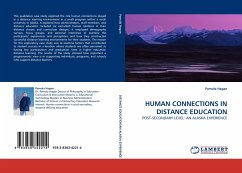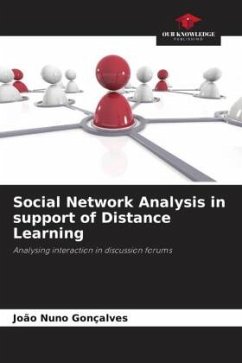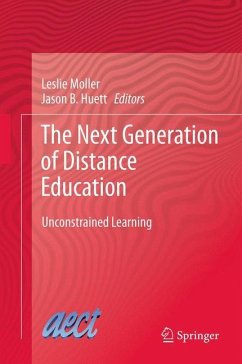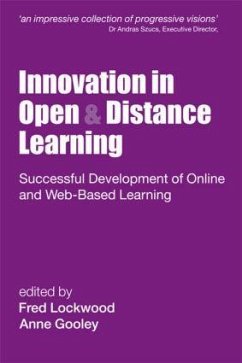
HUMAN CONNECTIONS IN DISTANCE EDUCATION
POST-SECONDARY LEVEL: AN ALASKA EXPERIENCE
Versandkostenfrei!
Versandfertig in 6-10 Tagen
45,99 €
inkl. MwSt.

PAYBACK Punkte
23 °P sammeln!
This qualitative case study explored the role human connections played in a distance learning environment in a small program within a small university in Alaska. It explored how administrators, staff members, and distance educators included (or excluded) human relations in their distance classes and curriculum designs. It employed demography surveys, focus groups, and personal interviews to examine the participants' experiences and perceptions and how they constructed successful distance learning environments for their students. The reason for this exploratory case study was to examine factors...
This qualitative case study explored the role human connections played in a distance learning environment in a small program within a small university in Alaska. It explored how administrators, staff members, and distance educators included (or excluded) human relations in their distance classes and curriculum designs. It employed demography surveys, focus groups, and personal interviews to examine the participants' experiences and perceptions and how they constructed successful distance learning environments for their students. The reason for this exploratory case study was to examine factors that contributed to student success in a location where students are often perceived as having low participation and graduation rates in higher education distance learning. The results of the study showed how important a programmatic view is in supporting individuals, programs, and schools who support distance learners.












